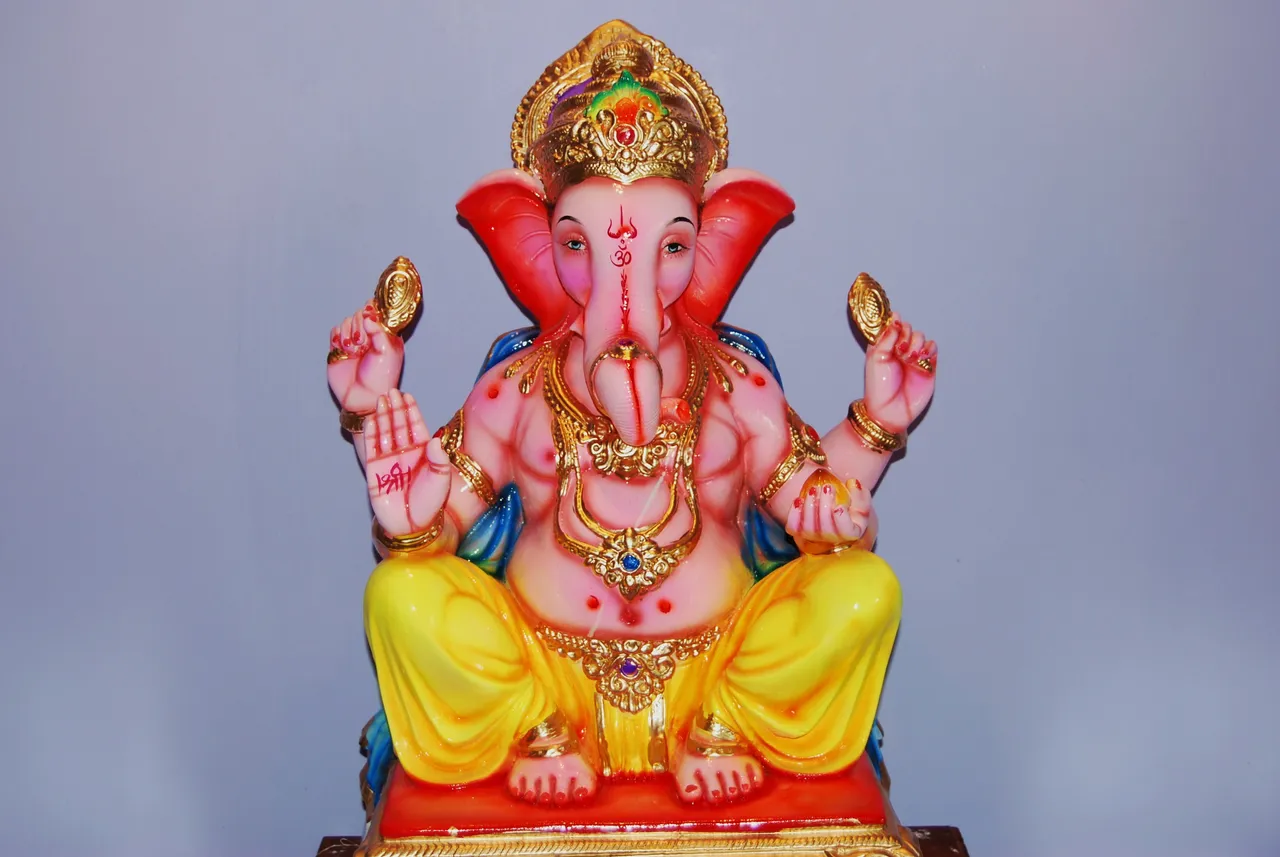
Shri Ganesh my god of knowledge.
Hello, community, and dear friends greetings this post is a contribution to the #unitytowardfreedom by dear friend @anttn.
Samadosha samagni ca sama dhatu malakriyah
Prasanna atma indriya manah svastha iti abhidhiyate
One who is established in Self, who has balanced doshas (primary life force), balanced Agni (fire of digestion), properly formed dhatus (tissues), proper elimination of malas (waste products), well-functioning bodily processes, and whose mind, soul and senses are full of bliss are called a healthy person. AYURVEDA.
The first line:
Samadosha samagni ca sama dhatu malakriyah belongs to the physical state
Sama: the ayurvedic meaning of this word is balanced
Samadosha: Simple way I can say balance in dosha. primary life force or constitution Vata, Pitta, and Kapha.
Samagni: Agni is the digestive fire. If the digestive fire is in balance we seek good health. And keeping a balance of digestive fire is one important key to being healthy. Balancing Agni we need to know what we eat and how we eat when we eat: if you want to know about please read my post:
@hindavi/what-should-we-be-eating
Samadhatu: balanced dhatu. Dhatus are the seven tissues that make our physical body – Plasma/Lymph, Blood, Muscle, Fat/Adipose tissue, Bone Tissue/skeletal, Connective/Marrow/Nerve, and Reproductive hormones. This dhatu also depends on our food, our thinking, our activities and our spiritual well-being when we eat our food. digestive Agni(fire) starts its process of converting food into plasma, then blood, then muscles, then fat then bones, nerves, and finally reproductive hormones which enable reproduction
Malakriyah: healthy waste products. In Ayurveda, our ability to produce and eliminate waste is a big indication of our health. The quality, quantity, and correct timing of our elimination make an important role in our health. Some malas are urine, sweat, and feces. having good health requires that we are able to manage the regular release of our malas or waste.
Second Line –Human Spirit at the Soul and Mental Level:
Prasanna Atma indriya manah svastha iti abhidhiyate
Prasanna: The Sanskrit word that describes happiness. Happy is also further translated as clear, lucid, bright, kind, cheerful, serene, and tranquil.
Atma Self or Soul. Atma means the individual soul if your behavior is good, karmas are good and you are balanced in any condition, you do your duties with devotion, treat people with love, kindness, and respect, and always have gratitude for everything that comes to you. the atma is happy as well as our super-consciousness is also happy.
Indriya: Sense organs and motor organs. If the sense organs are not functioning well we cannot fully connect with or experience the world. Without these we don't have a healthy physical existence as they are the tools for everything from perception to digestion. As I wrote above the dhatu or tissue is in balance the production of each stage goes in order of balance. If the beginning is unbalanced the whole system gets disturbed the progress of each stage of dhatu/tissue start building up toxins that are responsible for health issues, which end with an unbalanced nervous system. Here we say to achieve good health, our Motor and sensory system has to work properly and for that, we have to start from the beginning by finding our body type and learning how to manage our health with good foods, activities,( training, yoga, pranayam, gyms whatever) healthy thinking, healthy living according to our body's requirements. Sense: jnanaindriaya Motor: karmandriya
Manah: Mind. The mind is thought of as an incredible tool given in this life that is meant to be sharpened. Yoga and meditation are major tools utilized to access a happy and healthy mind.
Swashta: health or being in one’s natural state
Abhidhiyate: situated or abides
When the soul is happy, the senses are happy, and the mind is happy – that person abides in their natural state or health.
How do we do?
Ayurvedic therapy, including following its dietary principles, practicing traditional or herbal medicine, or seeking professional help from trained Ayurvedic practitioners. Or starts with following the ayurvedic dincharya/daily routine for good health based on our unique constitution. The best times to sleep, eat, exercise, work, relax, and more.
Dincharya:

**1.Wake up before sunrise **
In Ayurveda 1 hour before sunrise is the best time of day when universal consciousness is at its peak. It is a time gap in the morning before the plants start the process of photosynthesis again. Oxygen level is highest in the atmosphere. This free oxygen easily combines with Hemoglobin and forms an oxyhemoglobin component that can reach the tissues and cells with oxygen deficiency.
It is extremely beneficial in boosting the immune system because of the availability of fresh oxygen.
2. Oral health- brushing the teeth, tongue scraping & oil pulling.
There are many websites that give lots of information about it.
Just scraping the tongue protects us from germs and bacteria present on our tongue that produce bad breath. The toxins accumulated throughout the night are also present on the tongue, removing all the accumulated toxins and germs from your tongue is part of the best way to start the day.

Drinking warm water slowly.
Warm water increases our metabolism in the morning and keeps us active throughout the day. It also helps in the elimination and flushing of excess toxins from the body. Using herbal tea or mixing lemon juice and honey in warm water gives more benefits. Drinking water in a sitting position slowly, sip by sip, to achieve good benefits
4. Elimination
Once start drinking warm water in the morning becomes easier for our body to vacuate our bowels daily. Ayurvedic dinacharya is especially beneficial for people who suffer from irregular bowel movements and constipation. Try to make a regular time to allow our body to eliminate waste at a proper time in the morning. Eating some soaked raisins in the morning or drinking milk with ghee before sleep works very fine.
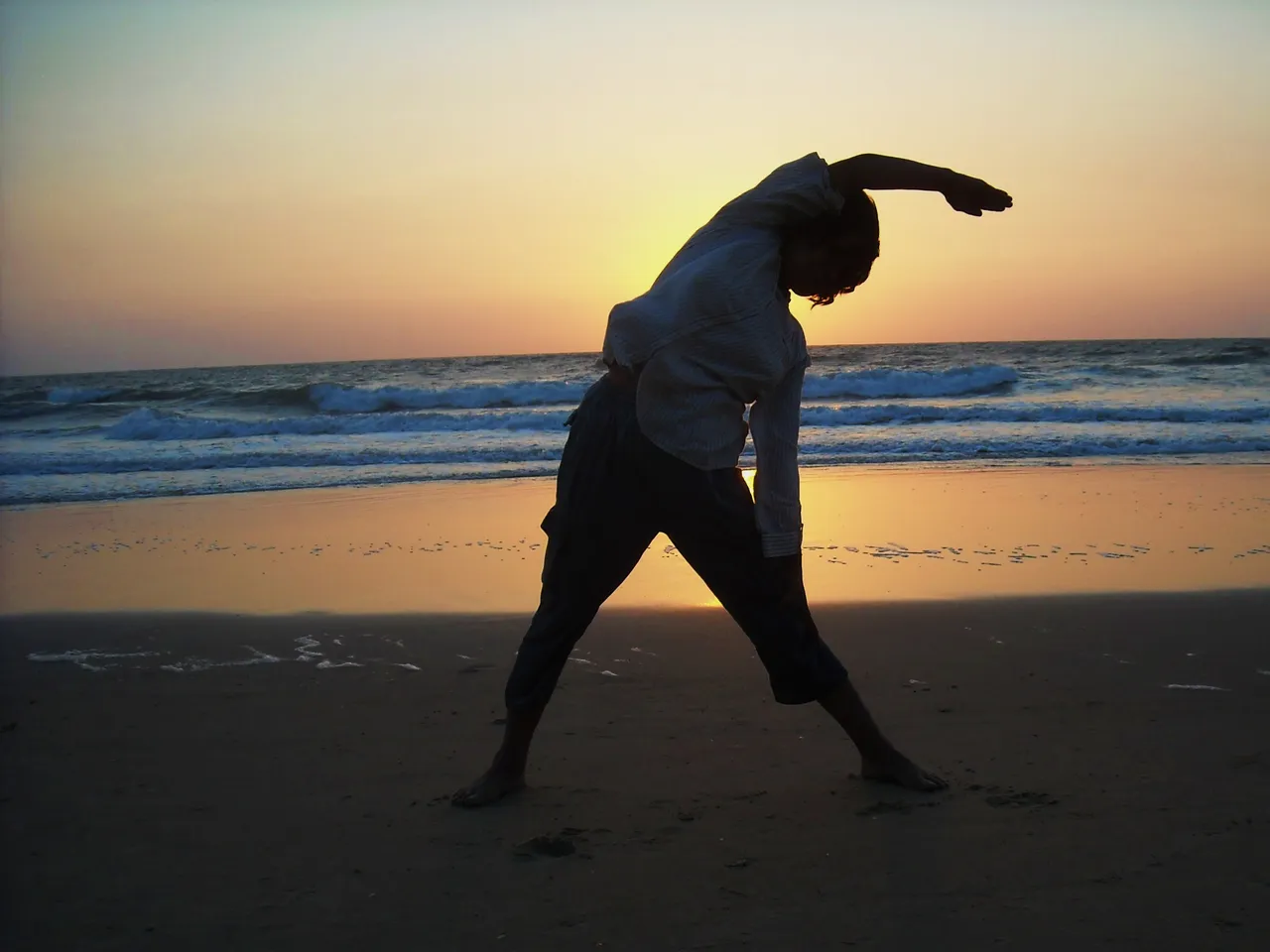
4.Sun salutations and Yoga
Now we are clean and our body is free from waste, we can move on to the next daily routine ritual of forming Yoga asanas. I do the sun salutation which includes many different positions
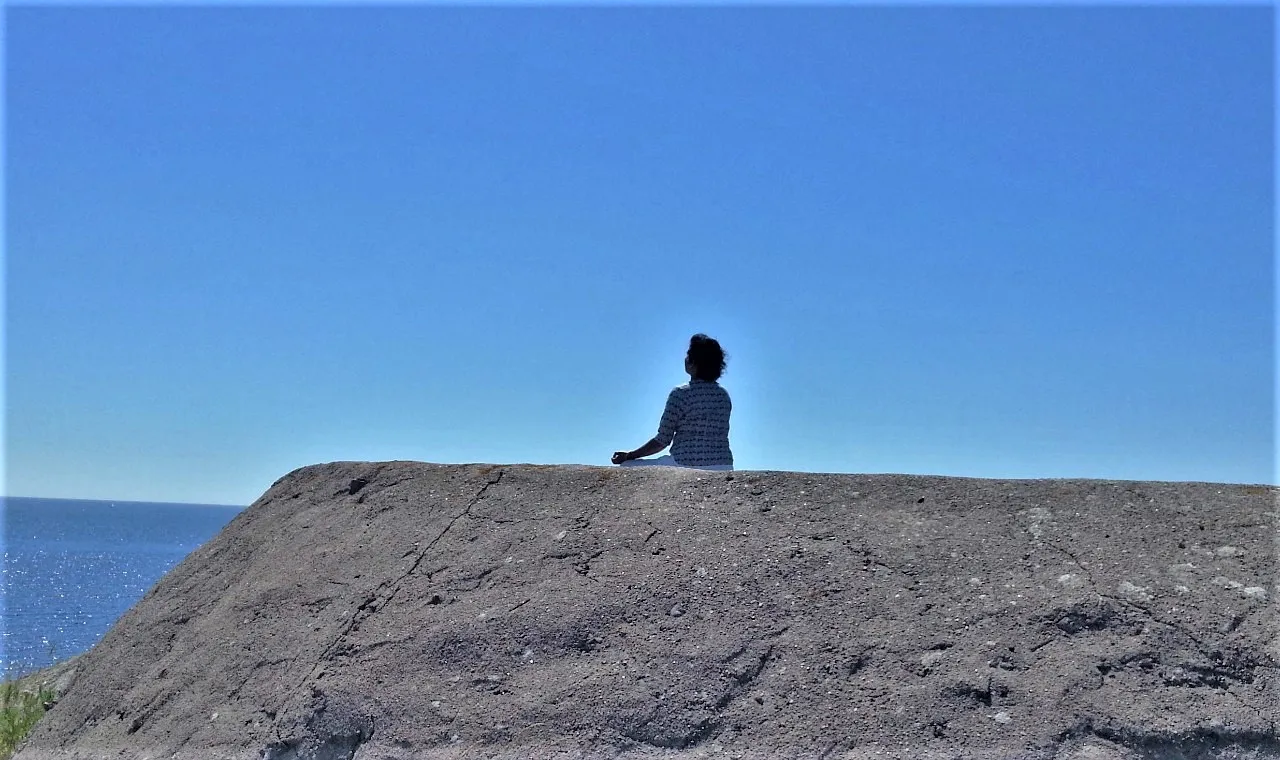
5.Pranayama & Meditation
10 minutes of pranayama and 10 min meditation is enough to boost for day's energy.

6.Daily Abhyanga/massage
Daily self-massage practice is recommended for all dosha types A daily small massage should be done on an empty stomach before bathing, increases blood circulation, removes toxins, moisturizes skin, opens up sweat glands for toxin movement, opens up nerve channels allow oxygen to circulate in the body and activate and energize the body, and get rid of dry scaly skin.
7.Bathing
Bathing is the ritual of physical and mental hygiene in Ayurveda. A daily bath allows our body to get rid of the excess heat and sweat produced throughout the night. It rejuvenates our minds and improves brain clarity in the morning. It prepares our bodies for a new day.
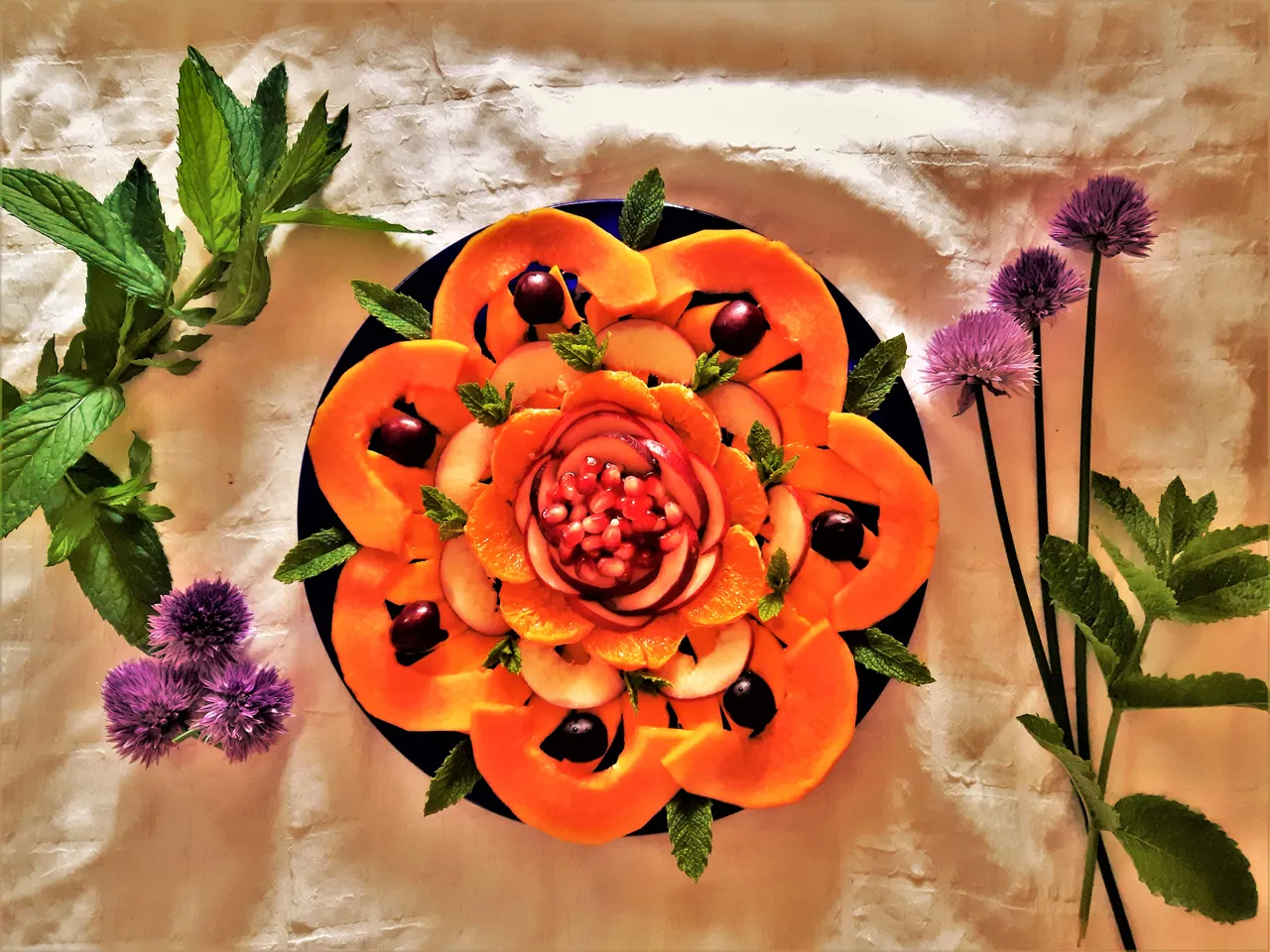
8. Breakfast
Having breakfast is a personal choice. but when following this routine most people will be hungry. If you feel hungry, have a simple meal with some fat to keep you full for a longer time. Eating heavy and spicy cold food in the morning put pressure on the digestive system. starting the day with fruits
is more beneficial.
9. Attending our daily work or duties. Doing work seriously. but keep control in stressful conditions, under depression, irritation, and work pressure. Maintain happiness and joy during our work routine.
Afternoon routine

1. Lunch
Lunch should be consumed between 11 am to 2 pm. during this time the digestive fire is at it's high peak.1 pm is the ideal time to have lunch. It gives you enough time for your body to digest your breakfast. This should be the biggest meal of the day. Include some raw vegetables or salad for lunch.
2. Work
2 pm to 6 pm which means it is time to think and look for ideas. This is a creative time so keep this time scheduled for creative tasks. Use this energy to come up with new ideas or create something unique. this is a great time to make a presentation, art creation, or a new project.
Evening routine
This is the time to relax and unwind.

1. Walk
Take a small walk in the evening to release work from your brain. It is a good time to reflect upon your day and process what needs to be done the next day. A small walk in nature can help cure all the stress that is bothering you about work or family. If you have a family, use this time to play with your children or walk with your spouse. Connecting with nature always refills new energy and inspiration in the body and mind. All bodily elements refresh when we connect them with nature.
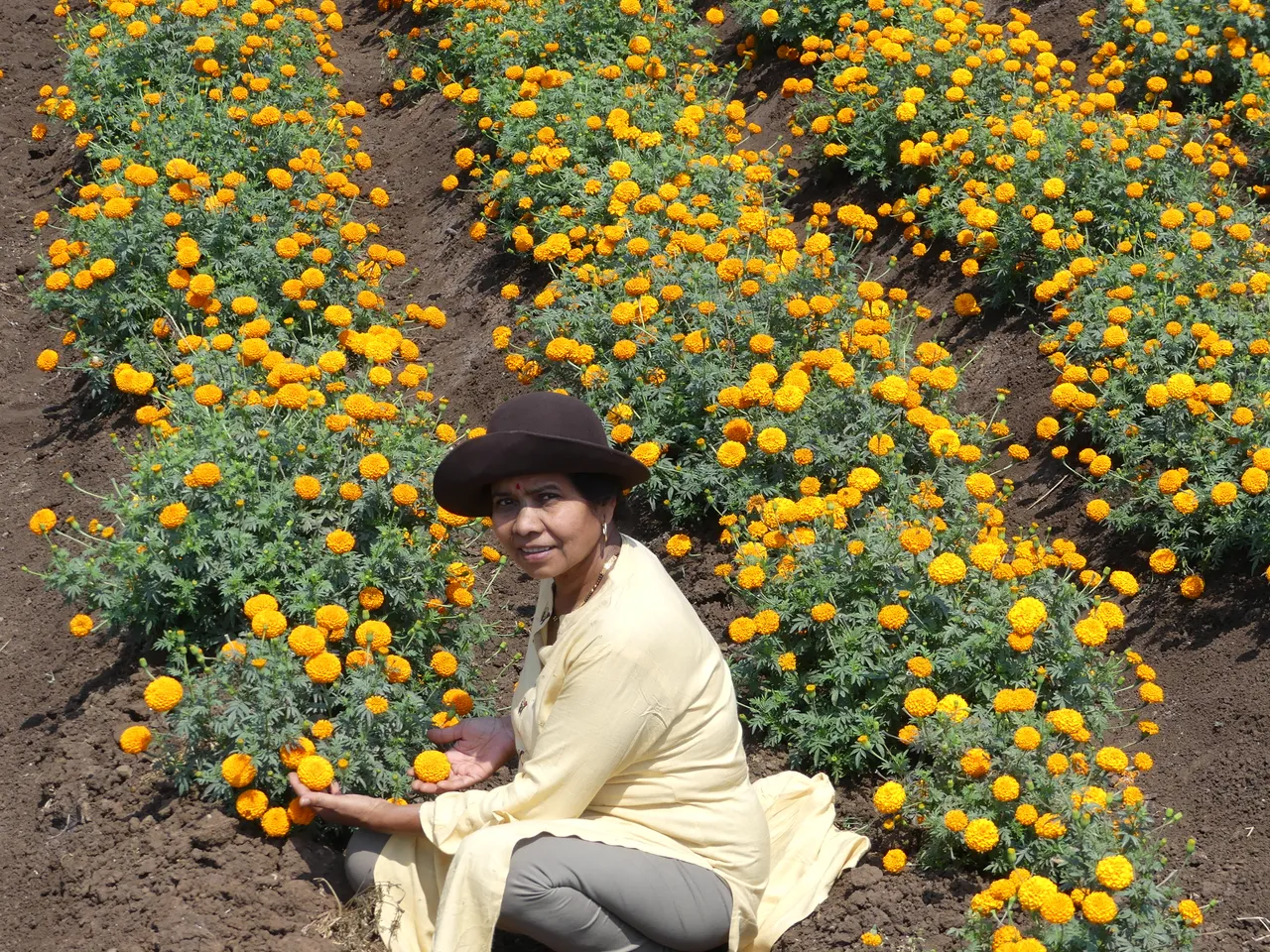
2. otherwise instead of a walk, Indulge in a hobby such as gardening
Utilize some time for the hobby, this is the best time to indulge in it. It will allow your brain to come out of the work mode and engage in soothing meditative hobbies like gardening or a sport, running, jogging, gyms, and swimming.
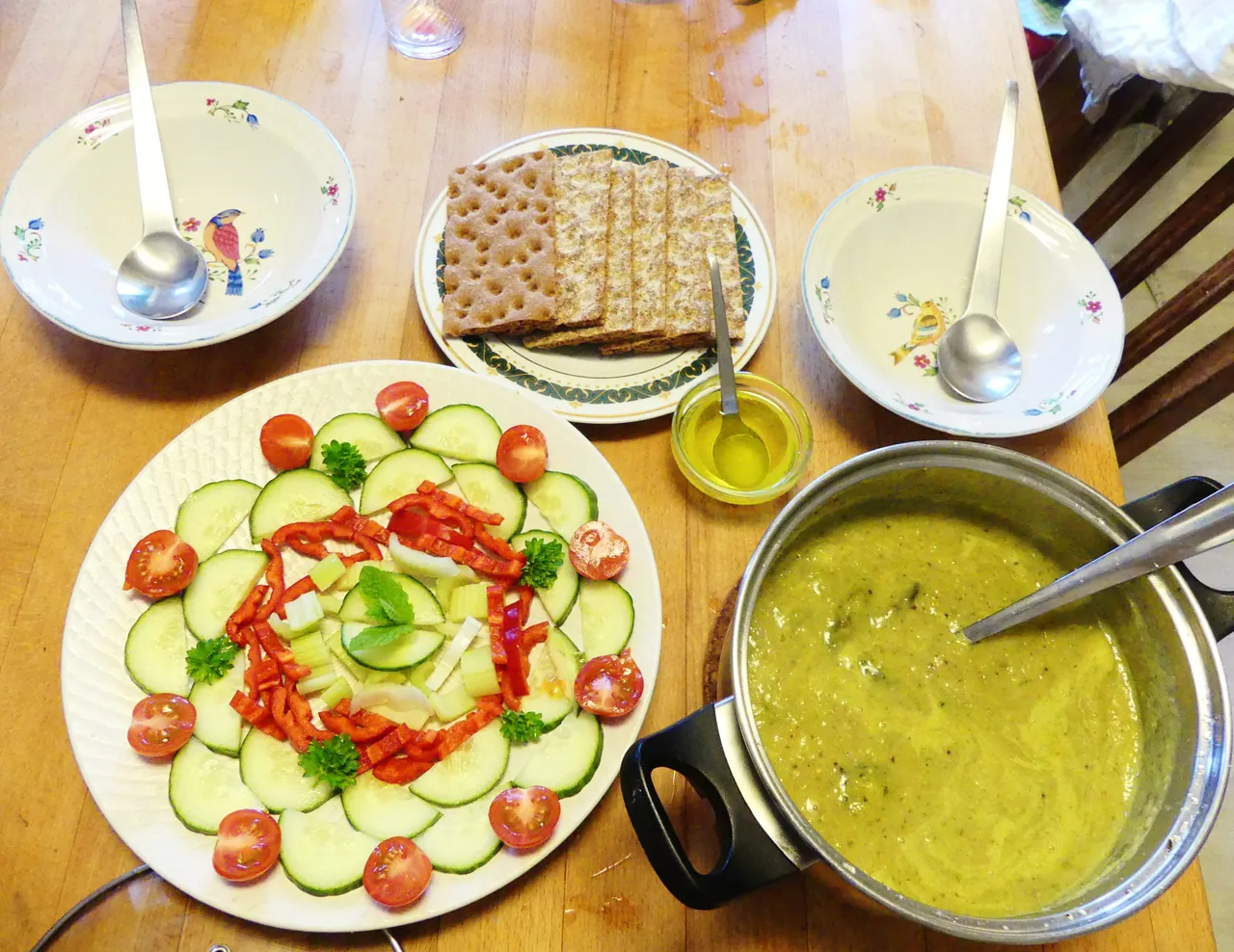
3. Dinner
Have a light, sattvic dinner before 8 pm in the evening. It gives ample time for the body to digest the food before sleeping. Some soup or Khichari is a very nourishing dinner option if you want to eat light. Add a teaspoon of ghee to your khichari for extra nourishment.
Recipe for khichari:
1 cup rice
1 cup moong dal
1/2 tsp salt
1/2 tsp turmeric
1-2 tbsp ghee
1 /2 tsp cumin
2 pinches of asafoetida
Wash and soak rice and moong dal for about 1/2 an hour.
Warm 1 tbsp ghee in a pan when it gets hot add asafoetida and cumin.
drain water from rice and dal, and stir them in the pan for 2-3 minutes add turmeric and salt and cook adding 5 cups of water to cook it soft. add 1 tbsp ghee after it cooks consume it with lime pickle.
Wind-down
After dinner, it will be easy for your body to wind down. Watch TV, read a book, and spend some time with your family during this time. If you still have to work in the evening, make sure you choose easy, passive tasks for the evening.Sleep
When we start following this daily regimen, our internal clock will sync with our environment. we should fall asleep quickly without much effort. However, if you have difficulty sleeping, Ayurveda recommends:Golden milk
Recipe
In one cup of milk, add ½ teaspoon of turmeric powder and Ashwagandha powder.
Boil this milk for 2-3 minutes and drink it warm.
Golden milk increases immunity and soothes our nerves. Ashwagandha has a number of benefits like increasing immunity, calming our brain, and decreasing stress, and depression, all of which are important for good sleep.Warm milk with honey or warm milk with saffron and cardamom.
Recipe
Add a teaspoon of honey to 1 cup of warm milk and consume it warm. Or 4-5 threads of saffron and 1 crushed cardamom give very sound sleep.
If don’t like milk, then can drink a soothing herbal tea. Any herbal tea made from ingredients like Brahmi, Ashwagandha, Shatavari, and Turmeric
shankhpuspi.will help our body relax.
These are the daily routines to keep physically mentally and spiritually healthy and I suggest to my clients that these routines get them healthy.
Those are the basic routines for everybody. here I like to mention, we don't have to start everything at once. Start slowly with a few habits like 1 or 3 and gradually increase. These routines build us physically, mentally and spiritually healthy and we live our life happily and joyfully.
Thanks for reading this long post but when the subject is health I couldn't stop myself. Merry Christmas and wish everybody good health in the coming new year 2023.🙏
